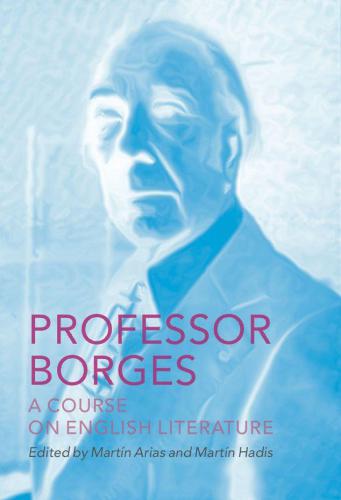
Professor Borges
A Course on English Literature
کتاب های مرتبط
- اطلاعات
- نقد و بررسی
- دیدگاه کاربران
نقد و بررسی

Starred review from March 25, 2013
This mesmerizing volume preserves the eclectic, erudite, and charismatic style of Argentine writer Borges (Labyrinths) and his insights on English literature, via his 1966 class at the University of Buenos Aires. Working from the transcriptions of tapes made by students, the editors have reconstructed the course, which traced English literature from its Saxon roots through the 19th century. The 25 lectures, on subjects including Beowulf, Anglo-Saxon elegies, and the novels of Charles Dickens, are bookended by informative essays and extensive, helpful endnotes. Borges moves effortless between subjects, almost overloading the senses with facts, digressions, and interpretations. While the lectures are not all equally compelling, there is enough here to keep the reader moving forward, and Borges’s delight and passion for every author shines brightly. As the afterword explains: “What Borges tries to do as a professor, more than prepare his students for exams, is excite and entice them to read the works and discover the authors.” Over 40 years later, he is still achieving that goal.

April 1, 2013
Edited and translated transcripts of recordings of a university class in English literature taught in the fall of 1966 by the celebrated Argentinian author. In 1966, Borges (1899-1986) had been teaching for 10 years at the University of Buenos Aires, and his lectures communicate a comfortable familiarity with the material; they also offer some piercing insights into specific works in the English canon. His 25 class sessions began with the Anglo-Saxons and ended with Robert Louis Stevenson and the notion of schizophrenia evident in Dr. Jekyll and Mr. Hyde and other works. (Shakespeare is present only in allusions.) His approach is highly traditional--mostly lecture and explication--though in some later classes, he invited students to read aloud from the texts; he periodically interrupted to illuminate. Also astonishing were his expectations for his students. He routinely alluded to other texts outside the syllabus (The Picture of Dorian Gray, In Cold Blood) and stated and/or implied that his students surely knew these works. Among the texts and authors he dealt with directly were Beowulf, Johnson and Boswell, James MacPherson, Wordsworth and Coleridge (he calls the latter "lazy"), Blake, Carlyle, Dickens (who "suffers from an excess of sentimentalism"), Robert Browning and William Morris. Borges--who had lost his eyesight by 1966--occasionally confesses some personal frailties--e.g., "I have a poor memory for dates." He also clearly believed in the importance of an author's biography: He continually introduced works with some details about the writer's personal life. Evident, too, is a trait that many contemporary students would probably find off-putting: a lack of humor. The classes were unrelievedly earnest and academic and included very few references to popular culture or contemporary history. A sobering, even startling, view of an academic world that has fundamentally altered and softened in the last half-century.
COPYRIGHT(2013) Kirkus Reviews, ALL RIGHTS RESERVED.

























دیدگاه کاربران